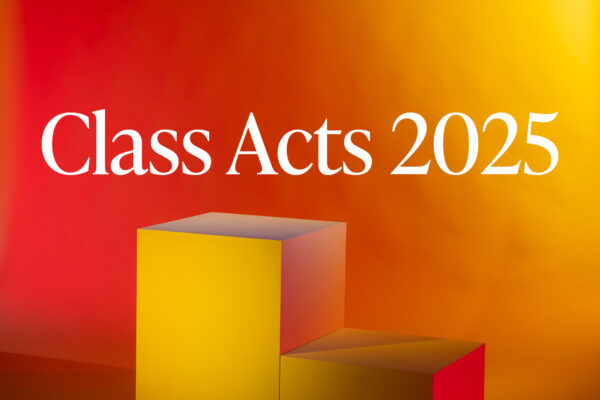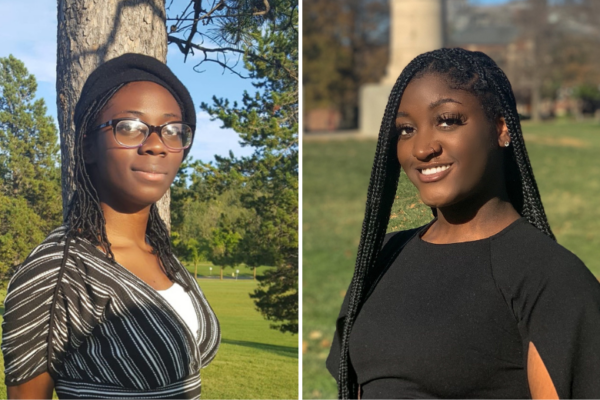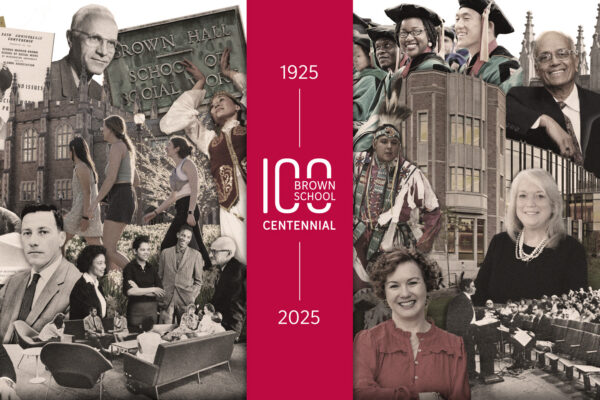When Mayah Clayton talks about public health, she doesn’t lead with data — she leads with people. A north St. Louis native, Clayton blends creativity, lived experience and a commitment to equity into her work, focusing on the real-world impact of structural disparities. Her approach is grounded in listening, mentoring and showing up for her community in tangible ways.
Clayton earned a bachelor’s degree in health sciences from the University of Missouri-Columbia in 2022 and soon will graduate with a master’s degree in public health, with a behavioral and mental health focus, from the Brown School.
Outside of the classroom, she founded Make A Mark, a grassroots service organization focused on reducing disparities in Black communities. The group addresses immediate needs — distributing sexual health kits, handing out blankets to people without housing downtown, and hosting annual toy drives for single mothers.
As a photographer, she uses her lens to highlight marginalized communities and challenge how people teach, discuss and practice public health.
A graduate of St. Louis Public Schools, she’s determined to shift the narrative around the neighborhoods she knows best.
What sparked your passion for public health, and how did it evolve?
I come from a community where ‘health care’ meant being a doctor or a nurse. I started in pre-nursing at Mizzou, but the coursework didn’t connect with me. I switched to health sciences and remember learning about how ZIP codes affect life expectancy, how Missouri ranks poorly in health outcomes. I kept thinking, ‘We’re being taught about systemic problems, but no one is talking about solutions.’ That lit a fire under me.
During the 2020 protests after the deaths of Breonna Taylor and George Floyd, I came home and leaned into activism. I realized I didn’t want to just observe systems — I wanted to challenge them. That, combined with my love for health, pushed me toward public health. At the Brown School, I studied epidemiology, research methods and biostats — but my heart stayed in qualitative work, connecting with people and building trust.
What experience has shaped your vision the most?
One of the most transformative was my practicum with LEAD STL (Leadership, Empathy, Advocacy, Diversity), a nonprofit that creates immersive learning experiences for youth. I started by teaching middle schoolers and high schoolers about history, identity, privilege and oppression — especially through a Black and Jewish lens.
One moment I’ll never forget was leading a public health session for Parkway School District students. We talked about racism in health care, health disparities and historical injustices like those faced by Homer G. Phillips Hospital. Seeing students develop awareness and their own voices was incredibly rewarding. It reinforced my belief in community-driven change.
Where do you hope to take your work next?
I’m still figuring that out. I’m taking a leap of faith. I’m a photographer too, and I’ve realized that public health storytelling doesn’t have to look like a report or a research paper. Inspired by Humans of New York and photographers like James Van Der Zee, I’m working on a photojournalism project capturing the everyday lives of St. Louis residents — particularly those in marginalized neighborhoods often labeled ‘red zones’ in public health conversations.
When I hear parts of St. Louis being described as dangerous or broken, I want to show the people I know — laughing at bus stops, gathering at events, just living. I heard someone call a predominantly Black neighborhood a ‘bad area.’ But what does that even mean? These are regular people facing systemic barriers. I want to capture that and use it as an entry point to talk about public health.
We need more empathy in how we teach and practice — especially for students like me who come from the communities being studied. We’re not just data points. My vision for public health is one where creativity is central, not secondary. I thought I’d leave St. Louis after graduation. But now? I’m staying. Make A Mark will continue. I want to buy a house here, build a life here and keep building the kind of future we all deserve.


